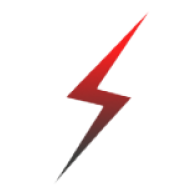
If you’re starting your journey in coding or want to explore a new language, you might wonder: Which programming languages are easy to learn, and which ones are really tough? In 2025, some languages are still beginner-friendly, while others remain complex because of how they work or what they’re used for.
In this blog, we’ll look at 5 of the easiest and 5 of the hardest programming languages based on:
- How simple the syntax is
- Community support and learning resources
- Real-world use cases
- The learning curve for beginners
Whether you’re new to coding or an experienced developer, this guide will help you choose the right language for your goals.
5 Easiest Programming Languages in 2025
These languages are great for beginners because they are easy to read, write, and understand.
1. Python
Python is still one of the easiest and most popular programming languages in 2025.
Why it’s easy:
- Simple and readable code
- Huge community support
- Tons of tutorials and free courses
Best for: Web development, AI, data science, automation
2. JavaScript
JavaScript is the language of the web. If you want to build websites or web apps, this is a must-learn.
Why it’s easy:
- Runs directly in web browsers
- Fast to see results
- Works with HTML and CSS
Best for: Frontend and backend web development, apps, games
3. Ruby
Ruby, especially with the Ruby on Rails framework, is known for being simple and enjoyable to write.
Why it’s easy:
- English-like syntax
- Great for building web apps fast
- Beginner-friendly environment
Best for: Startups, web development, quick prototyping
4. Scratch
Scratch is a block-based language used mainly to teach kids how to code. But it’s great for total beginners of any age.
Why it’s easy:
- Visual programming (no typing code)
- Great for learning basic coding logic
- Drag-and-drop interface
Best for: Kids, beginners, learning coding logic
5. HTML & CSS (Bonus Mention)
Technically, HTML and CSS aren’t programming languages, but they’re the foundation of the web. You’ll need them to build and design websites.
Why they’re easy:
- Simple tags and structure
- Easy to see changes in a browser
- Huge number of tutorials
Best for: Web design, beginners exploring frontend
Sharpener offers a Full Stack Development Course that covers:
- HTML, CSS, JavaScript
- React, Node.js, MongoDB
- Real-world projects and live mentorship
What makes Sharpener special? Pay After Placement. That means you can start learning now and focus on building skills without worrying about fees.
Zero upfront payment
Job-focused training
Designed for beginners and career switchers
Sharpenerian’s work at the best companies!

Join Sharpener’s Full Stack Course Now and launch your developer career confidently!
5 Hardest Programming Languages in 2025
These languages are powerful but have steep learning curves. They may require understanding complex concepts or lower-level computing.
6. C++
C++ is a high-performance language but is difficult because of its complexity and strict rules.
Why it’s hard:
- Complex syntax
- Manual memory management
- Harder debugging process
Best for: Game development, performance-critical software
7. Rust
Rust has become very popular for system-level programming and safety, but it’s not beginner-friendly.
Why it’s hard:
- Strict rules about memory safety
- Unique concepts like ownership and borrowing
- Long compile times for beginners
Best for: Systems programming, secure and high-performance apps
8. Haskell
Haskell is a functional programming language that’s very different from traditional ones.
Why it’s hard:
- Pure functional concepts
- Steep learning curve
- Limited job market
Best for: Academic projects, functional programming fans
9. Prolog
Prolog is a logic-based programming language used in AI and expert systems.
Why it’s hard:
- Uses a very different way of thinking
- Not much documentation for beginners
- Rarely used in modern projects
Best for: Artificial intelligence, rule-based systems
10. Assembly Language
Assembly is one of the closest languages to how machines work. It’s used to directly control hardware.
Why it’s hard:
- Very low-level and detailed
- No modern tools or shortcuts
- One small mistake can break everything
Best for: Embedded systems, hardware development
Tips for Choosing the Right Language
If you’re just starting out or switching careers in 2025, here’s how to pick the right programming language:
| Goal | Best Language |
| Build websites | HTML, CSS, JavaScript |
| Learn to code from scratch | Python, Scratch |
| Make games or apps | JavaScript, C++, Unity (C#) |
| Work in AI or Data Science | Python, R |
| Get into systems programming | Rust, C++, Assembly |
| Love solving math problems | Haskell, Prolog |
Conclusion
In 2025, some programming languages remain easy to learn and use, while others challenge even experienced developers. If you’re a beginner, start with something simple like Python or JavaScript. If you’re ready to level up, languages like Rust or C++ offer more power — but also more complexity.
Remember: the “hardest” or “easiest” language depends on your background and what you’re building. Choose what fits your goals, and don’t be afraid to explore!

